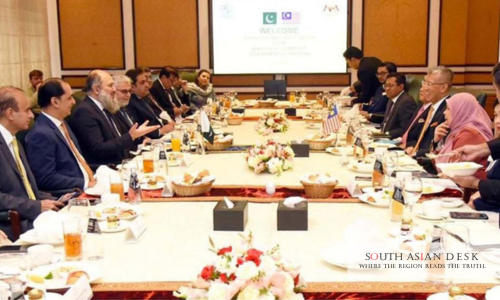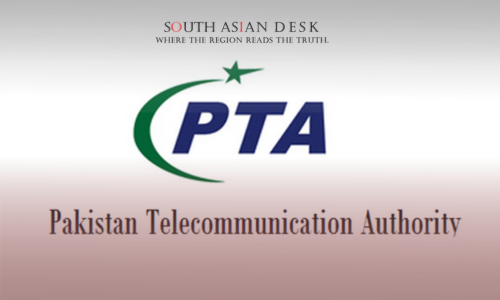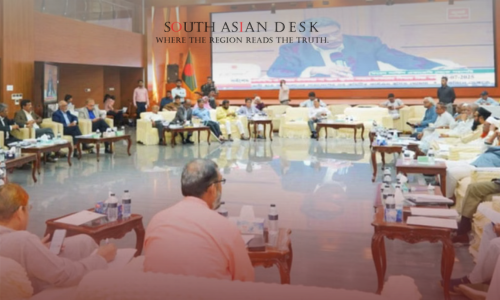KUALA LUMPUR: Prime Minister Shehbaz Sharif undertook an official visit to Malaysia from 5 to 7 October 2025, meeting his counterpart Anwar Ibrahim in Putrajaya to strengthen bilateral ties and elevate Pakistan’s role in ASEAN through targeted cooperation. The three-day itinerary, at Anwar Ibrahim’s invitation, focused on defence, trade and security pacts. Discussions addressed regional stability and economic diversification. This Pakistan PM Malaysia visit ASEAN role initiative marks a strategic pivot amid shifting global alliances.
The engagement holds significance for South Asia as Pakistan seeks to broaden its diplomatic footprint beyond immediate neighbours. By aligning closer with ASEAN under Malaysia’s 2025 chairmanship, Islamabad aims to tap into a bloc representing over 680 million consumers and a combined GDP exceeding $3.6 trillion. This move counters economic isolation risks, boosts export avenues for Pakistani goods like textiles and halal products, and enhances collective bargaining on issues such as climate resilience and counter-terrorism. For Malaysia, it reinforces leadership in fostering inclusive regional forums, potentially stabilising supply chains disrupted by geopolitical tensions.
Arrival and Official Ceremonies Set Tone for Pakistan PM Malaysia Visit ASEAN Role
Prime Minister Shehbaz Sharif arrived in Kuala Lumpur on 6 October 2025, greeted by a guard of honour from the First Battalion of the Royal Ranger Regiment at the Perdana Putra Complex. The ceremony underscored mutual respect between the nations, which share historical, cultural and Islamic bonds dating back to the 1950s.
Anwar Ibrahim hosted Sharif for closed-door bilateral talks, followed by delegation-level discussions. The atmosphere proved constructive, with both sides exchanging views on pressing global matters. A joint press conference capped the morning session, where leaders reaffirmed commitments to practical outcomes.
In his remarks, Anwar Ibrahim highlighted the visit’s potential to reinvigorate stagnated ties. “Relations between our countries, though long-standing, had become somewhat stagnated,” he stated at the subsequent Pakistan-Malaysia Business and Investment Conference. “We need a renewed, practical approach anchored in clear policies.” Sharif echoed this sentiment, expressing confidence that Pakistan-Malaysia relations would “continue to grow stronger and stronger.”
The Pakistan PM Malaysia visit ASEAN role extended to symbolic gestures, including the launch of the Urdu translation of Anwar Ibrahim’s book Membangun Negara MADANI or SCRIPT. This initiative reflects intellectual alignment and Pakistan’s appreciation for Malaysia’s governance model.
Anwar Ibrahim Shehbaz Sharif ASEAN Cooperation Takes Centre Stage
Central to the agenda was Anwar Ibrahim Shehbaz Sharif ASEAN cooperation, with Sharif congratulating Ibrahim on Malaysia’s ASEAN chairmanship. Both leaders welcomed progress under the ASEAN-Pakistan Sectoral Dialogue Partnership: Practical Cooperation Areas 2024-2028.
They deliberated ways to deepen Pakistan’s engagement, including support for Islamabad’s bid to become a Full Dialogue Partner. “The two leaders further deliberated on strengthening Pakistan-ASEAN engagement,” noted a joint statement from Pakistan’s Press Information Department. Anwar Ibrahim pledged backing, emphasising a “strong, formidable ASEAN in terms of trade and investments.”
Discussions also covered the Middle East crisis, particularly Gaza. Both condemned violence against Palestinians and urged immediate cessation of hostilities. “Malaysia and Pakistan hold firm to the universal humanitarian principle that all forms of killing and massacre against the Palestinian people must be stopped,” Anwar Ibrahim posted on X after the meeting. Sharif reiterated Pakistan’s constructive role in peace efforts, thanking Malaysia for its steadfast support on Kashmir.
This Anwar Ibrahim Shehbaz Sharif ASEAN cooperation framework extends to multilateral forums, where both nations aim to coordinate on UN reforms and climate action. Pakistan’s enhanced ASEAN role could facilitate joint ventures in renewable energy, aligning with its green initiatives and Malaysia’s net-zero ambitions by 2050.
Six Key Agreements Seal Enhanced Ties
The talks yielded six accords and several memoranda of understanding, exchanged in the presence of both prime ministers. These span critical sectors, signalling a comprehensive upgrade in relations.
- First, an agreement bolsters defence cooperation under the 1997 Joint Committee on Defence Cooperation. It promotes high-level visits, ministerial meetings, military exchanges and industry linkages, with focus on technology transfer in defence science.
- Second, aviation connectivity receives a push to increase air traffic rights, expanding flight routes to spur business, tourism and people-to-people links.
- Third, healthcare collaboration targets pharmaceuticals and medical devices, aiming to enhance public health exchanges and commercial opportunities.
- Fourth, disaster management efforts emphasise knowledge sharing in humanitarian aid, emergency response and post-disaster recovery, vital for monsoon-prone regions in both countries.
- Fifth, cybersecurity pacts address transnational crimes, terrorism financing and cyber threats through intelligence swaps and capacity building.
- Sixth, a note exchange between Malaysia’s Institute of Diplomacy and Foreign Relations and Pakistan’s Foreign Service Academy fosters diplomat training.
Additional MoUs cover higher education, halal certification, anti-corruption, tourism and small-to-medium enterprise development. Malaysia’s Minister of Tourism, Tiong King Sing, and Pakistan’s Minister of Information, Attaullah Tarar, oversaw the tourism pact, while anti-corruption leads from both sides handled their agreement. These pacts, part of the broader Pakistan PM Malaysia visit ASEAN role, target a trade volume uplift from the current $2.1 billion annually.
Business Forum Drives Economic Momentum in Anwar Ibrahim Shehbaz Sharif ASEAN Cooperation
The Pakistan-Malaysia Business and Investment Conference drew over 200 executives, where Anwar Ibrahim stressed pragmatic partnerships. “We have traditional relations in trade and partnership. We have realised that dependency on one country, one system, will be futile,” he said. “We need, therefore, to expand trade relations.”
Sharif announced a Malaysian commitment to import halal meat worth US$200 million from Pakistan, hailing it as a “welcome step” on X. This deal alone could inject vital foreign exchange into Pakistan’s livestock sector, employing millions. Delegates explored synergies in digital technology, semiconductors and STEM education. Anwar Ibrahim noted shared visions for government-private sector collaboration, ensuring “strong political will and effective policies drive resilient bilateral growth.”
Pakistan’s exports to Malaysia, dominated by rice, cotton yarn and surgical instruments, stand to diversify into IT services and pharmaceuticals. Malaysia, a key halal hub, offers certification expertise that aligns with Pakistan’s ambitions in global markets.
The forum concluded with pledges for joint ventures, potentially creating 10,000 jobs over five years through SME linkages. This economic thrust complements the Anwar Ibrahim Shehbaz Sharif ASEAN cooperation by integrating Pakistan into supply chains like the Regional Comprehensive Economic Partnership.
Background: Evolution of Pakistan-Malaysia Relations
Pakistan and Malaysia established diplomatic ties in 1957, evolving through shared Commonwealth membership and OIC solidarity. Trade peaked at $2.4 billion in 2018 but dipped due to global disruptions. Recent high-level exchanges, including Sharif’s June 2025 call with Ibrahim, laid groundwork for this visit.
Malaysia supported Pakistan during its 2019 IMF programme and advocates for its WTO interests. In turn, Pakistan backs Malaysia’s palm oil trade amid EU scrutiny. This foundation informs the current push for bolder ties.
What’s Next for Pakistan PM Malaysia Visit ASEAN Role
Follow-up mechanisms include the next Joint Committee on Defence Cooperation meeting in 2026 and annual trade reviews. Both sides plan quarterly consultations on ASEAN matters, with Sharif inviting Ibrahim to Islamabad in early 2026.
Implementation hinges on ratifying the new pacts, expected by year-end. Success could see bilateral trade double by 2030, while Pakistan’s ASEAN role strengthens through observer status advancements. The Pakistan PM Malaysia visit ASEAN role heralds a proactive era, where Anwar Ibrahim Shehbaz Sharif ASEAN cooperation bridges South and Southeast Asia for mutual prosperity.
Published in SouthAsianDesk, October 7th, 2025
Follow SouthAsianDesk on X, Instagram, and Facebook for insights on business and current affairs from across South Asia.






